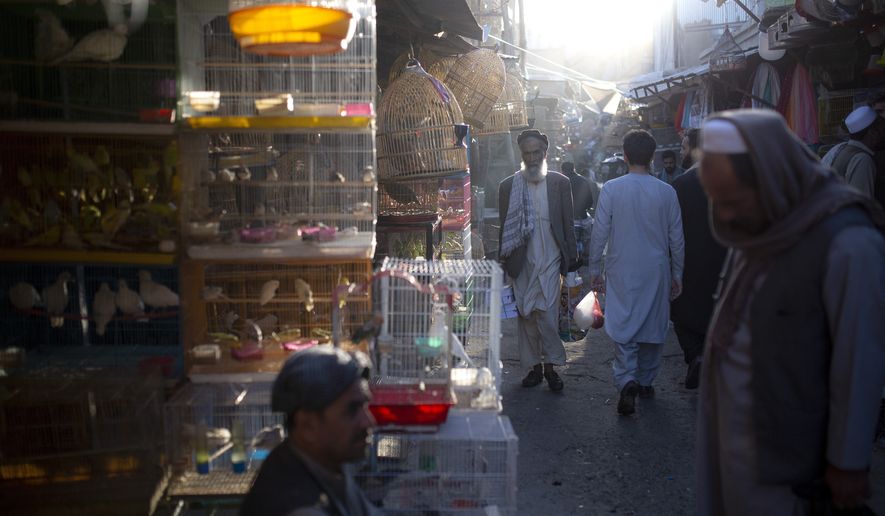The European Union on Tuesday pledged nearly $1.2 billion in aid to avert a humanitarian crisis in Afghanistan, which has been cut off from most international assistance since the Taliban took power in August.
The aid was announced as part of a virtual summit on Afghanistan convened by the Group of 20, a coalition of the world’s 20 largest economies.
“We must do all we can to avert a major humanitarian and socio-economic collapse in Afghanistan,” European Commission President Ursula von der Leyen, said in a statement.
“The Afghan people should not pay the price of the Taliban’s actions,” the statement continued.
The European Union’s aid package includes roughly $350 million for humanitarian aid and roughly $290 million to support those “in urgent need, particularly in the field of health.”
Despite the warning bells by the European leaders, no other summit participant, including the U.S. announced an aid package Tuesday.
When asked whether allies were frustrated that the U.S. didn’t offer to do more during the summit, White House press secretary Jen Psaki said, “I haven’t heard them have that complaint.”
Countries in the G-20 have found themselves in a thorny patch on how to provide aid to Afghanistan, which has been on the brink of collapse since the U.S. withdrawal last month.
Health clinics have run out of life-saving medicines, doctors haven’t been paid in months, and cases of measles and diarrhea are surging, according to the World Health Organization.
The United Nations has warned that millions of Afghans could run out of food and, with winter approaching, the risk of starvation is increasing. More than a million children are at risk of severe malnutrition.
United Nations Secretary-General Antonio Guterres said Monday that Afghanistan is facing “a make or break moment” and implored other countries to help it “weather this storm.”
But most of the G-20 countries haven’t officially recognized the Taliban government and are wary of writing checks. When the Taliban run the country 20 years ago, they were accused of pilfering humanitarian aid
Daniel Runde, director of the Center for Strategic and International Studies Project on Prosperity and Development, said countries should work through non-government organizations to keep aid out of the Taliban’s hands.
“We have a moral obligation to help the Afghans that helped us,” he told The Washington Times.
The U.S. last month offered $64 million in aid, a relatively small sum compared to the EU package. The Treasury Department also froze more than $10 billion in Afghanistan government reserves held in the U.S., which has contributed to the economic calamity.
However, the U.S. has historically been the largest supplier of humanitarian aid in Afghanistan.
Since 2002, the U.S. has provided more than $3.9 billion in assistance, according to the United States Agency for International Development, an independent government agency responsible for distributing foreign aid.
“The United States remains committed to working closely with the international community and using diplomatic, humanitarian and economic means to address the situation in Afghanistan and support the Afghan people,” the White House said in a statement after Tuesday’s summit.
• Jeff Mordock can be reached at jmordock@washingtontimes.com.




Please read our comment policy before commenting.